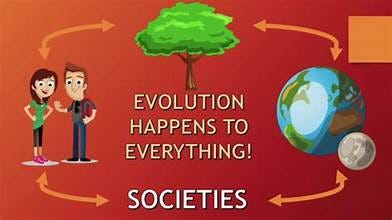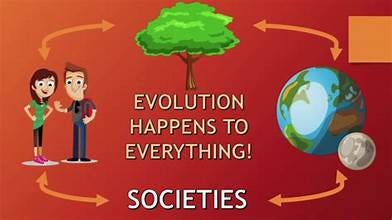Evolution of Political Parties
Like everything else, political parties evolve with time. The Republican Party evolved from the party of Lincoln, the Civil War and the end of slavery to become a more conservative party, focusing more on wealth and business, morphing into wild anticommunism during the Cold War and the McCarthy Period, and most recently an almost racist party.
Meanwhile, the Democratic Party evolved into a party of the common people in the 1930s with FDR’s New Deal and then morphed into a more timid party under the anticommunist period and finally into yet another political party controlled by corporate money. There always was, what Paul Wellstone called, the Democratic Wing of the Democratic Party, which was antithetical to a party controlled by big money, and so it was often shunted aside. With Bernie Sanders’ candidacy in 2016, the party was shown the desire by the ordinary voters for a more people-oriented party, but that was pushed aside, leading to the debacle of the 2016 election, not only losing the presidency, but also losing control of nearly the entire nation as the country turned red with that election.
Recent Evolution of the Democratic Party
In the 2020 election, the party chose a middle of the road candidate, Joe Biden, who barely won, but since has been willing to proceed with a more progressive domestic agenda with a great deal of success. Just look at the willingness to provide the necessary social support during the pandemic and more recently supporting the resurgence of the union movement. The result being a very vibrant economy with many advances for ordinary citizens. There has been a transition back to the values of the FDR New Deal approach to national life.
Next Necessary Evolution
There is, however, one huge transition which is still waiting in the wings, one that would reorient the Democratic Party back to a party of the ordinary people. That transition is the transition from the military and economic empire-oriented approach to foreign affairs to a new focus on diplomacy and shifting current funding to domestic issues.
Our present focus is on the military and economic approaches to foreign problems, both of which tend to see issues as competitions in a win-lose context.
Since the end of WWII, our nation has been involved in helping the world recover from that war, but mostly in the context of capitalism in competition with communism, so it was never without strings attached. Although the context was presented as supporting democracy, it also had a heavy focus on accepting free-market capitalism, later to be formalized as neoliberal capitalism. Those directions were enforced with a large military presence and the economic pressures applied to any society by a transition to neoliberal economics. Those pressures were often about protecting and expanding markets and assuring resources for our economy. And any forces which deflected that approach were seen as threats to progress and were often defeated by economic forces, if not military force.
The result was that the rise of nations, often former colonies, trying to establish themselves as independent and self-determining entities across the world, were often seen as threats to secure and dependable US markets and sources of raw materials. And that security was often represented by the established leaders of those nations rather than the dissatisfied people of those nations who wanted a voice in their futures and a change with inclusivity. Those changes should have been seen as a yearning for democracy but were more often interpreted as an indication that communism was taking hold. Sad when the urge toward democracy is seen as a communist threat.
The result was that we used our economic and military power to keep what we saw as predictable and dependable leadership in power and were often seen as supporting the old Western European colonial traditions against the desired nationalism of many nations. In the desire to control global markets and retain control, we, in the US, focused more and more on goals that looked more and more like imperialistic goals, keeping the world stable for our own economic exploitation.
Our military is scattered across the globe, not unlike the reach of an empire. Our economic reach has dominated trade across the world. Although we would deflect those charges, the realities are hard to deny. We are in constant conflict over economics and markets, especially with China, and we have been either at war, supplying weapons to others who are at war, or directly supporting proxy wars as in Ukraine, and recently even a genocide in Gaza. Some speak of our policy as promoting “Forever Wars”.
And then there is NATO, an extension of US military force in Europe which has been a focus of expansion for us lately, even pressuring otherwise neutral nations to join. Is this an urge to turn Europe into and armed camp?
And, in the process we, as a society, have morphed into a nation focused more and more on militarism and economic power. We spend more on our military than the next 5 nations combined, and our military are spread out across the world. And our economic power is paramount and is used as the measure of successful life in this nation. We have supported a gun-crazed society and militarized the police.
We give huge tax breaks to the wealthiest and corporations, therefore depriving many social programs and national priorities of the necessary tax support to deal with our infrastructure needs and the necessary funding to deal with overwhelming problems like climate change.
The next step for the continuing evolution of the Democratic Party is to shift from our imperialistic, militaristic and economic goals and to restore a more human balance of life supporting goals to deal with domestic needs. This would also mean that we begin to see diplomacy as the realistic option to international problem-solving, as a potential win-win approach.
If the Democratic Party wants to stay relevant in this evolving 21st Century, it will need to make this final evolutionary move to free up the focus, talent and resources necessary for a sustainable future for this nation.







Hi, Bob - This sought after “evolution” should require us all (Americans) to think of what non-hegemonic role the U.S. can play in a truly multipolar world. The “New American Century” is not going to happen.
It’s over! And we should not allow ourselves to be the last country on Earth to realize this!
All the best!
Rob Scarlett